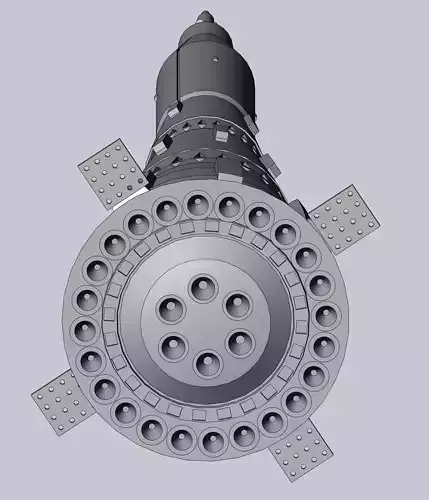1/18
During the end of the space race the N1-L3 was a last attempt by the soviet space program to create a rocket that could put humans on the moon - and while there are quite a few substancial differences to the American Apollo and Saturn V program it is still often compared as it was the closest competitor that existed and to some degree that comparison works. It's history was vastly difference with the Apollo porgram being ground up designed to put humans o nthe moon while the N1-L3 was a modified version of the N1 program which was originally conceived for interplanetary flybys without landing. The N1 had less efficiency and performance (the concept called for 3 people to orbit anand one to land on the moon ratehr then 3 and two as in the Apollo program) and most famously used many small engines rather then few large ones with it's first stage running 30 main engines. Several testflights were conducted but all of them failed though arguably due to execution / technical limitations at the time rather then the concept itself. The N1 is also one great example for gridfins being used as stabilizers/fins on the first stage base to help controlling the rockets ascent. It also featured completely spherical tanks stacked ontop of each other within conical fairings as well as the open grid interstage known from the russian space program but on a massive scale. While it never worked it still has a strange fascination for rocket science enthusiasts so I made a 3d-printable scale model. The model is full scaled but small features and the engine nozzles have been thickened so that when the model is scaled down to fit into a printer they can still be pritned with an average nozzlethe pack features STL's for both the whole rocket as well as separate stages as far up as stage 3
REVIEWS & COMMENTS
accuracy, and usability.



















